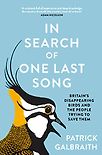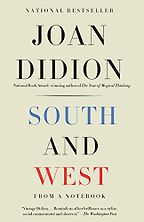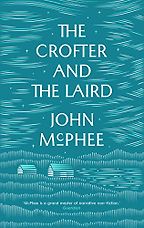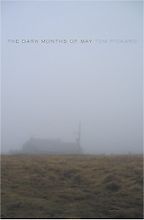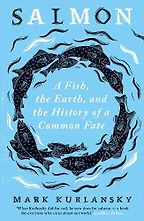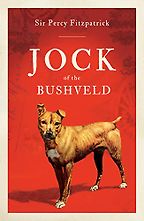We’re here to talk about ‘sense of place’ in books. It’s a literary term with a specific meaning; I wonder if you could start us off by explaining what that is, exactly.
Writers talk about a ‘sense of place’ all the time, as though it’s an obvious and universally understood concept but I think it’s a multitude of things, human as well as physical, and places in lots of senses are ever-changing. It’s important to recognise, I think, that we all see and feel places differently. ‘But she didn’t really capture the true heart of West London’, for example is a pretty flawed idea. It’s interesting to read about places you’ve never been to but it’s as interesting, perhaps more interesting sometimes, to read about places you have been to. Places seen through another person’s eyes. You often come away feeling as though actually you’ve not really been to that place at all. One person’s Edinburgh is very different to another person’s Edinburgh, which speaks to all sorts of notions of access and privilege. I find it fascinating how six different writers might have six different senses of the same place. That said, discovering a sense of place is almost like discovering a sort of secret sometimes—except that it’s a secret made up of, like, 20,000 different secrets.
I think when we think of ‘place’ in writing, we straightaway turn to notions of landscape writing, weather, rocks, and so on. But I’ve become quite interested in the idea that writing about people often helps to capture the character of a place. I think sitting in a café somewhere, or even sitting on a bench, listening to snippets of conversations, you can learn an awful lot. I lay in bed last week in South London listening to two men talking about their favourite bridge. There was a lot in there.
With a lot of nature writing now, it’s often all about one man communing with nature, projecting some idea that he has onto a place, a preconceived notion. That is a great risk you can’t ever go out there in search of a preconceived sense of place—you need to accept that it might not be the place you thought it would be at all.
That’s something you do quite a lot of in your own work. Your new book, In Search of One Last Song, is a tour of the British Isles in search of disappearing birds and the people who love them.
Yes absolutely. Someone commented about my book, that it’s odd that I didn’t go to speak to rewilding aristocracy or the big bird organisations. Instead, I wanted to speak to people who are deeply embedded in places. In the Orkney Islands, for example, there was a fish merchant, Billy Jolly, who’s seen seabird numbers dwindle his whole life and has been deeply affected by it. He’s a beautiful harmonica player, actually. We often go to the obvious people and forget to ask those who’ve stood by and watched all their days—often they have very deep knowledge and connections, a sort of communion with the land and the landscape. Sometimes it’s not even going to see anybody at all but just sitting and listening in domestic settings, in cafes and on buses, there’s a deep sense of place to be found in places like that.
“To get to the heart of somewhere I think you need to forget the gatekeepers and the spokespeople”
That’s what Joan Didion does so well in South and West; she often talked about how there were things she meant to do, great people she meant to meet and events she was meant to be at. She doesn’t do any of it, though. Instead she sees car crashes and children out playing. Capturing a place is not about those essential, must-visit places, but comes from talking to people who live there. To try and get to the heart of somewhere I think you need to forget the gatekeepers and the spokespeople—go find the people who those gatekeepers and spokespeople have often overlooked.
Let’s talk about South and West first, as you’ve brought it up. It’s based on notebooks she kept while travelling through American South through the 1970s, plus some musings on her home state of California. It’s one of her lesser-known books.
By building up a picture, snippet by snippet, observation by observation, she captures a sense of America’s instability and its differences. There’s a lot, too, of the sense that humans haven’t really been able to claim these places for their own—she writes about all these algae-covered ditches, the mosquitoes, and so on.
But what’s really interesting about Didion is the way she lets people speak for themselves. I think when you go somewhere you want to write about, you have to go in with no preconceptions. I know when I was writing my book, I was aware that there were things people were saying that were quite ‘problematic’ sometimes but that’s part of who we are—in censoring everything you lose truth and truth isn’t always right and beautiful. It’s tempting to go around casting judgement on things, but what Didion does is, she’s just a pair of eyes through which we see these different places. There’s a sort of detachment.
Like Christopher Isherwood’s “I am a camera.”
There’s a wonderful subtlety to how she captures place. There’s a haunting, Gothic sense through which she sees everything, but it’s never editorialised. Like: this is how you’re meant to see this place, because this is how I see it. Which I think is how a lot of contemporary writing about place can go wrong. I think it would be an intellectual shortcoming if she did that. So her cold detachment is interesting to me.
Get the weekly Five Books newsletter
I was reading a new book recently, which is based on the writer’s ethnographic research. The writer cites a code of ethics for academic research; everyone who appears in the book is identified only by first name, and they all come off as just… really nice. Whereas in the Didion or the John McPhee books, there’s some pretty cutting stuff that they say about people. I really respect them for that. Because how can you capture a sense of place without the darkness? If you avoid the awkwardness, people become two dimensional.
Well, let’s talk about that book by John McPhee. You want to recommend The Crofter and the Laird. McPhee is a longtime New Yorker writer. In this book, he has uprooted his family to move to the Scottish island of Colonsay in search of his roots. Why do you recommend this book, in the context of our discussion of sense of place?
This does feel like an over-done narrative. But it’s done brilliantly, and I think it’s a good lesson not to be scared to tread well-trodden turf. What I like about this book is the way he presents the complexity of the community, and their feelings towards the laird, who only lives on the island in the summer. This is the 1960s. It’s a time of great change—the end of an era. And there’s complexity in his personal narrative too; he goes to this place, where a lot of his ancestors hailed from. And at points he says, well, I don’t have any more connection to it than you would, whoever you are. I think that’s really interesting.
There are beautiful moments but there isn’t a sense that he’s compelled to paint the landscape for us on every second page—in a way it’s not very of our time and it’s better for it I think. Less of his love of the land and more of his curiosity about the community. He mentions Scarba, an island where I spent ten days sleeping in a cave—I write about it in my book—there are no people there now at all. It’s interesting that when the people go, the place changes entirely.
I think when you first arrive in a rural area, your initial response is to the landscape. But the more time you spend there, the less you think about the scenery, and the more you become attuned to the social network. And it becomes more of a functional landscape to you. So it’s interesting to see this book zero in on the social structure of the island at this point in time, because it’s a place seen from the inside, rather than from the outside.
Completely. And I admire the bravery. To present a place properly you’ve got to tell secrets. He doesn’t shy away from doing that. But there’s a tremendous love for the island as a whole. When you start to write about place, you’re writing very deeply about who its inhabitants are. It can be very raw. People’s own sense of the place they live in is what makes them who they are. So you have to be honest, but you also have to handle it respectfully. I think he does.
I suppose writing a portrait of a small place like this—there would have been about 150 islanders at that time—is a very personal endeavour. These were his neighbours and friends.
While I was writing my book, I met a man who told me that though his father trained as a butcher, he had become a fishmonger. This man he went away and learned how to fillet a fish properly, and after that, he said, he never saw his father the same way again. He couldn’t fillet fish. He was just a butcher. I thought, that’s so funny. But there’s so much in that as well. He kind of told me everything about himself in that little vignette. I think John McPhee does that; he captures how, in these places, people say an awful lot in very little.
Let’s move on to the English poet Tom Pickard’s collection, The Dark Months of May.
Pickard kind of kickstarted the British Poetry Revival. He started when he was, like, 17. He went to go see a guy called Basil Bunting, one of the great modernists. In London, when they were doing T. S. Eliot, in the north of England, they were doing Basil Bunting. So Pickard went to see Bunting, and they ended up in this place called the Morden Tower, a very radical experiment. Ginsberg came over and later said that Pickard is one of the most live and true poetic voices of the time.
But then he got really into birds. I think he’s better than anybody at writing about birds. His collection Fiends Fell is just extraordinary. What’s interesting is that nature writing is often such a PG space, whereas in Picard’s erotic poem ‘Lark and Merlin’ there’s, like, a sex cam scene amid this beautiful writing about larks and so on. There’s no home for him, basically—they aren’t going to have him reading on Countryfile. So Fiends Fell is brilliant. He lived for 11 years above a café in Cumbria—it’s so rooted in a place and he’s it in such minute loving and vulnerable details. He’s also obsessed with the wind. Fiends Fell is basically an 11-year exploration of the wind, so if you ever want to write wind better, I really recommend reading that.
“People’s own sense of the place they live in is what makes them who they are”
But I’ve chosen his collection Dark Months of May. It’s about when his marriage breaks down, and he just sets off to start afresh—it’s a really raw collection. In some senses it’s not about place at all, or rather it’s about the places in between; there’s a great bit about being at the bus shelter while they’re doing renovations, and covering over roads, and a man comes over to say to him: ‘that’s history, that.’
So it’s about liminal places—I think it’s important to recognise how much of a powerful and evocative place a roundabout can be. If someone in a creative writing class said: ‘okay, place: I’m going to write about bus stations,’ it would be a pretty unorthodox choice. But these are very transitory places, places that are ever changing. There’s that cliched idea—attributed to Heraclitus—that a man can’t cross the same river twice; because it’s not the same river, and he’s not the same man. I think that’s the beauty of bus stations or service stations—I went to many, many service stations when writing my book actually.
I like that, non-places. I came across an analogous concept recently in Emmanuel Carrère’s new book Yoga: the idea of ‘interstitial time’, those moments when you are waiting for something to start, or between appointments.
Yes. It’s very interesting how he writes about ostensibly prosaic places, but with the most beautiful little passages.
Your next recommendation is Salmon, by Mark Kurlansky, who is the author of bestselling microhistories like Salt: A World History and Cod: A Biography of the Fish that Changed the World. Tell me about the sense of place we might find in this book?
I think what I really like about it is the way he shows the connections between people and a species. He looks at, for example, Native American groups who paint salmon on stones and rub them, hoping to absorb the qualities of the salmon: vitality and endurance.
One of the reasons I wanted to write my own book is that it’s interesting to see how cultures are informed by the creatures they live alongside. When these creatures are gone, we have a great loss of cultural connection. It’s much easier to see it in other peoples than ourselves; we don’t see that the nightingale is an essential part of England, for example.
In many ways, it’s a deeply depressing book. We have tried to tame the salmon and exploit it, through salmon farms. But it informs our sense of place and time so strongly; people would know that it was spring, because that’s when the salmon came back. It’s interesting how our sense of rhythm through life is informed by the coming and going of other species. And there’s a global connection, too, through the salmon’s migration—it means so many things to so many different groups, different peoples but they connect us all. I was rereading the Kurlansky during lockdown and it made me think that even when the world was shut up and closed there were these threads running around the globe in the water and in the sky being created by migrating salmon and swallows and turtle doves going to Africa and so on. Places are connected to other places by wild creatures. To lose the salmon—and Kurlansky makes it very clear that we might—would be to live in a more disconnected world.
Your final ‘sense of place’ book choice is intriguing. Percy Fitzpatrick’s Jock of the Bushveld, about a South African dog. It was published 1907.
I read it when I was quite young and I fell in love with terriers—for years I pestered my parents about getting one, and finally I did. I spent a lot of my teenage years exploring the woods and the river and the fields around my house with that little dog—it gave me a great a love of place and natural beauty. But about the book: it’s a fascinating look at South Africa in the early 20th century. In the story, this guy gets a little terrier, the runt of the litter that no one wants, and it grows up to be a mighty dog who he has great hunting adventures with. It’s a book that really stayed with me, but I have to say as a disclaimer that it’s very much a book of its time.
What I liked about it was that it’s very much about the landscape: it’s about a place with no big game in it, because all the big game has gone—it’s been hunted to extinction. They have all sorts of pursuits with ungulates, different deer and antelope, but there are no elephants because they’d already killed them all off. So it’s a book about a place that’s changed. Writing about place can create a snapshot of somewhere at a certain moment in time—it’s really interesting to compare such writing with other depictions of the same place, at different moments, to see what is there and what’s not.
In a simple way too, it was one of the first books I read that really made me feel, quite viscerally, the beauty of landscape. A little like Laurie Lee’s Cider with Rosie, the beauty of the natural world in Jock of the Bushveld hits you pretty viscerally.
Just to be clear for our readers—this is a children’s book?
Well, yes. Kind of.
In the way that Call of the Wild is a children’s book?
It’s funny to look at books that were aimed at children in the early 20th century. You think, how on were children reading this? Now children’s books are like ‘stroke the fluffy dog!’ whereas then they were reading pretty serious literature. I suppose Jock of the Bushveld sparked a bit of interest in post-colonial literature. Jock of the Bushveld ultimately led me on to Doris Lessing, and Ngũgĩ wa Thiong’o, and Elspeth Huxley. I suppose Jock brings me back to that idea of how different people will have different takes on the same place. This is very much written from a white settler viewpoint. Things are left out that I ultimately went in search of in other books. It gets back to that idea of place in literature being a patchwork that’s built up and developed.
I suppose in the same way that one, as a reader, wants to follow beloved characters on to new books, really successfully conjuring the sense of a particular place might have the same effect.
It’s very interesting to see how more and more poets are writing fiction and nonfiction, that concerns itself with place. I think that’s a really great thing. They often have an interest in minutiae. A.K. Blakemore and Kathleen Jamie, for example. There is a brilliant writer who features briefly in my book, Alison Brackenbury, who is currently working on a nonfiction book about the women in her family and village life. I’m really excited about it.
Last time I saw Tom Pickard he told me he might work on something about the time he got banned from the North Sea. It’s a hilarious and crazy story—writing on place ought to be funnier I think. People are funny.
Interview by Cal Flyn, Deputy Editor
July 22, 2022
Five Books aims to keep its book recommendations and interviews up to date. If you are the interviewee and would like to update your choice of books (or even just what you say about them) please email us at [email protected]
Five Books interviews are expensive to produce. If you've enjoyed this interview, please support us by donating a small amount.

